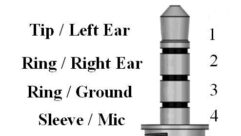Two long-time low-power FM advocates plus an LPFM lobbying group want the FCC to reconsider licensing stations at higher power levels in rural areas.
Currently LPFMs are authorized to operate at between 50 to 100-watts.
Specifically, LPFM advocates Don Schellhardt and Nickolaus Leggett have petitioned the commission to consider licensing LP250 watt stations, which would be 101 to 250 watts. Prometheus Radio Project supports the concept as well and has been lobbying for that at the commission.
Certain existing LP100 stations and new applicants, they write, should become eligible to apply for upgrades to LP250 status after a “shakedown” period. Criteria would be the LP100 has operated for two years, the applicant’s record demonstrates an “adequate or better” level of technical competence and an upgrade would not adversely affect a neighboring station. They envision an LP100 operating before the October 2013 filing window could seek an upgrade in 2014 but LP100s licensed during and after the window would need to wait.
Such LP250s could not fall into any Standard Metropolitan Statistical Areas, as defined by the U.S. Census Bureau, according to the advocates.
As part of their petition, Schellhardt and Leggett quote prior comments filed by the Catholic Radio Association to bolster their argument: “We submit that the 100 watt limit on power for a LPFM is unnecessarily draconian in rural areas where larger coverage areas are possible, and where such larger coverage areas would mitigate the economic challenges faced by rural LPFM operators in particular. With this in mind, the agency should open a filing window for new LPFM facilities where power is authorized up to 250 watts in rural areas. This would significantly improve the prospects for economically viable service.”
Higher-wattage LPFMs would improve the station’s signal coverage and visibility as well as make it easier for them to find underwriting, note the pair, who previously advocated the licensing of LP250s as part of The Amherst Alliance.












